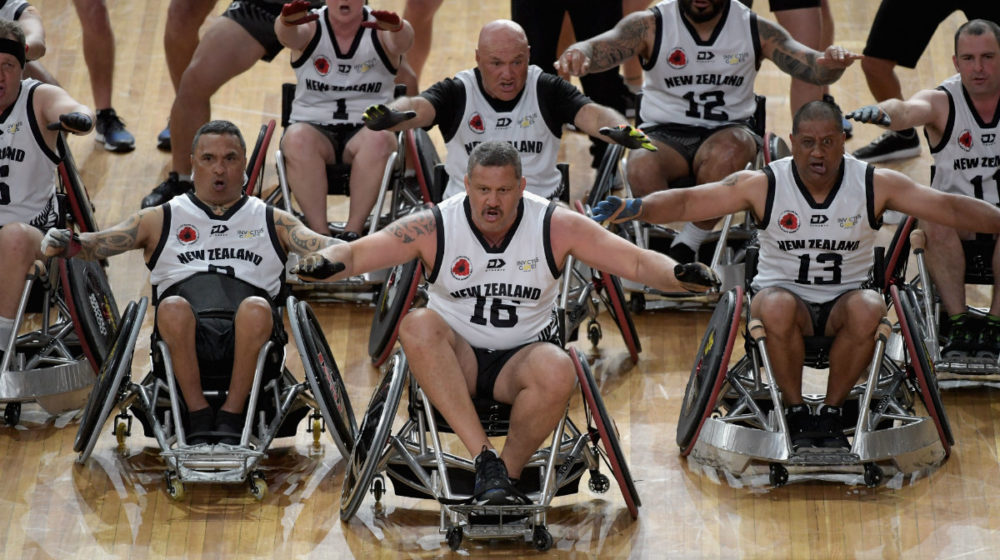One of the people who was instrumental in composing New Zealand’s Invictus Games-themed haka says the team’s wheelchair basketball side is undecided if they will perform the adapted traditional posture dance – but, if they end up meeting Australia, there is a good chance.
The Invictus Games Sydney 2018 wheelchair basketball competition starts on Friday and will provide the final medal of the Games, before the Closing Ceremony on Saturday.
Padre Darren O’Callaghan – a member of the wheelchair rugby and basketball teams, and an indoor rower – said performing the haka before the game against Australia was to honour the hosts.
“We’ve only done it to their team. It’s something really special,” said O’Callaghan, who is competing at his second Invictus Games.
“Before last year’s Games we decided we would compose a haka for our team. I asked if I could be part of that. We used some of the words from the poem by William Ernest Henley. One of the lines is ‘I am the master of my fate, captain of my soul’. We translated that into te reo Maori.
“The other line from the poem is ‘My head is bloodied but it’s unbowed’. It means, we’ve gone through our adversities, but our heads are not bowed because of them.
“The haka talks about who we are – we’re Invictus. It’s a challenge to our opposition, but it’s also saying that we’re in the same boat. This is us, but it’s you as well.”
O’Callaghan, who has early onset Parkinson’s disease, has spent 13 years as a chaplain in the NZ Defence Force, during which he has served on three deployments, to East Timor, Solomon Islands and Afghanistan, where he has felt a sense of duty to help those in need. He applies the same principle to the men and women of the New Zealand Defence Force.
“As a chaplain, it’s pastoral care role, helping people through all sorts of situations if they want to talk to us,” he said.
“It’s about being someone to confide in, to come to talk to. We look after their spiritual well being, helping them with life decisions. There’s a whole lot of things we deal with that affect our soldiers.
“It’s a privilege to walk alongside a person’s journey in life, through their ups and downs. There are times we celebrate and there are sad times, as well.”
The sadness O’Callaghan may have felt about his illness has been tempered by the love and support of his family and by getting out into the community and talking to people facing similar challenges.
“The support from my wife and children and my extended family has been great. My faith has helped me too,” he said.
“It’s part of my journey. I always believe something good will come from everything. And that’s what has happened here, experiencing the Invictus Games has been great, meeting people, making new friends.
“When you see people from other countries displaying that spirit of getting up and having a go. Some of the cheers you see are for the ones who are coming last. It’s because it’s just about finishing the race. Those things are inspiring.
“When I first heard about the Invictus Games I wasn’t sure what that spirit meant. But when you get here you really understand it.”
David Sygall
Invictus Games
